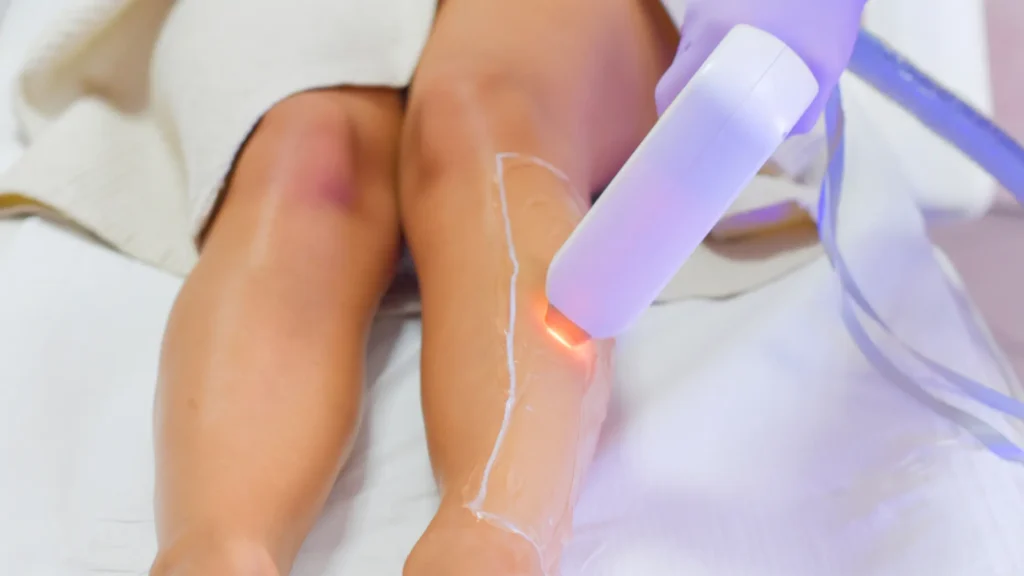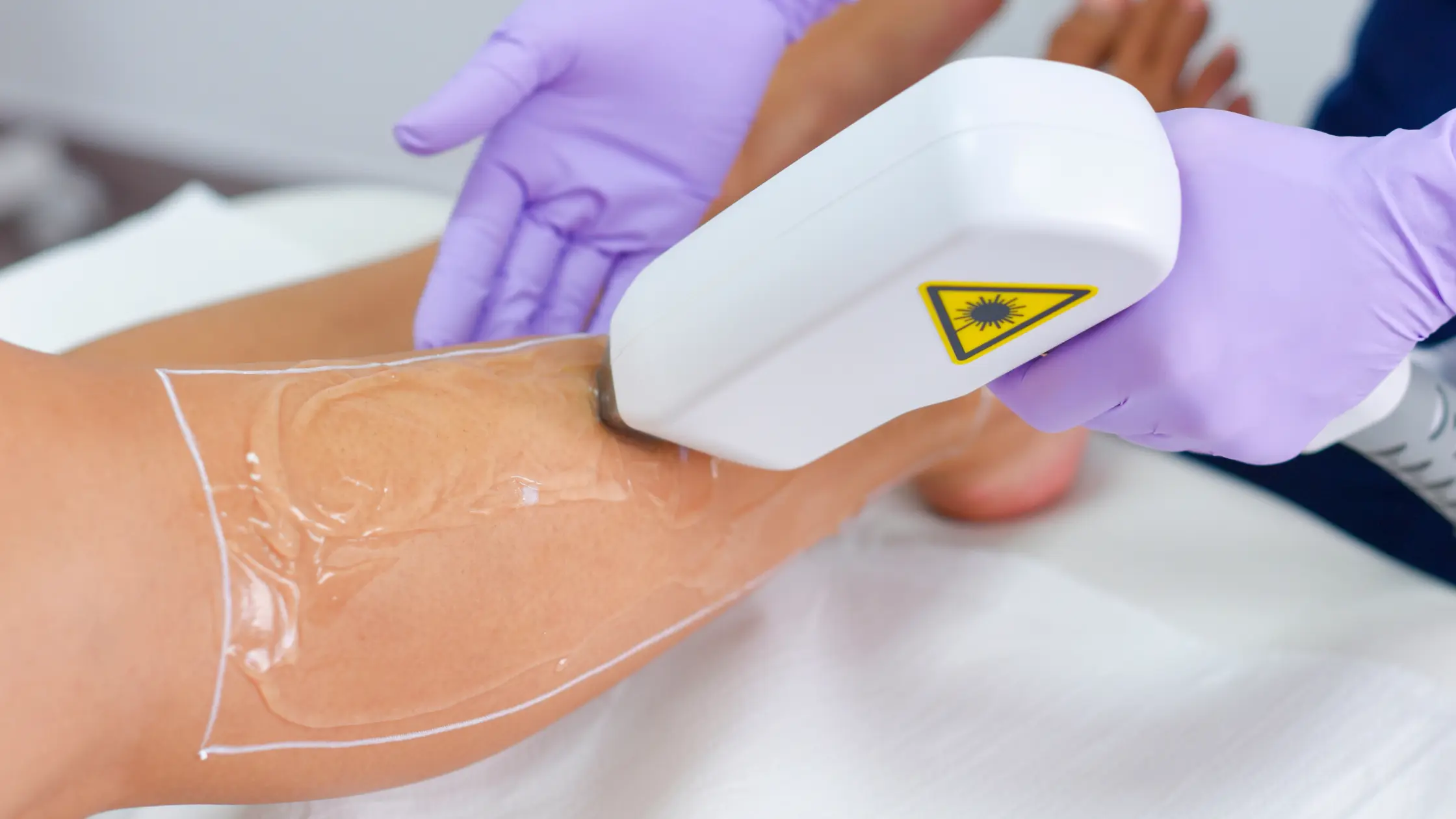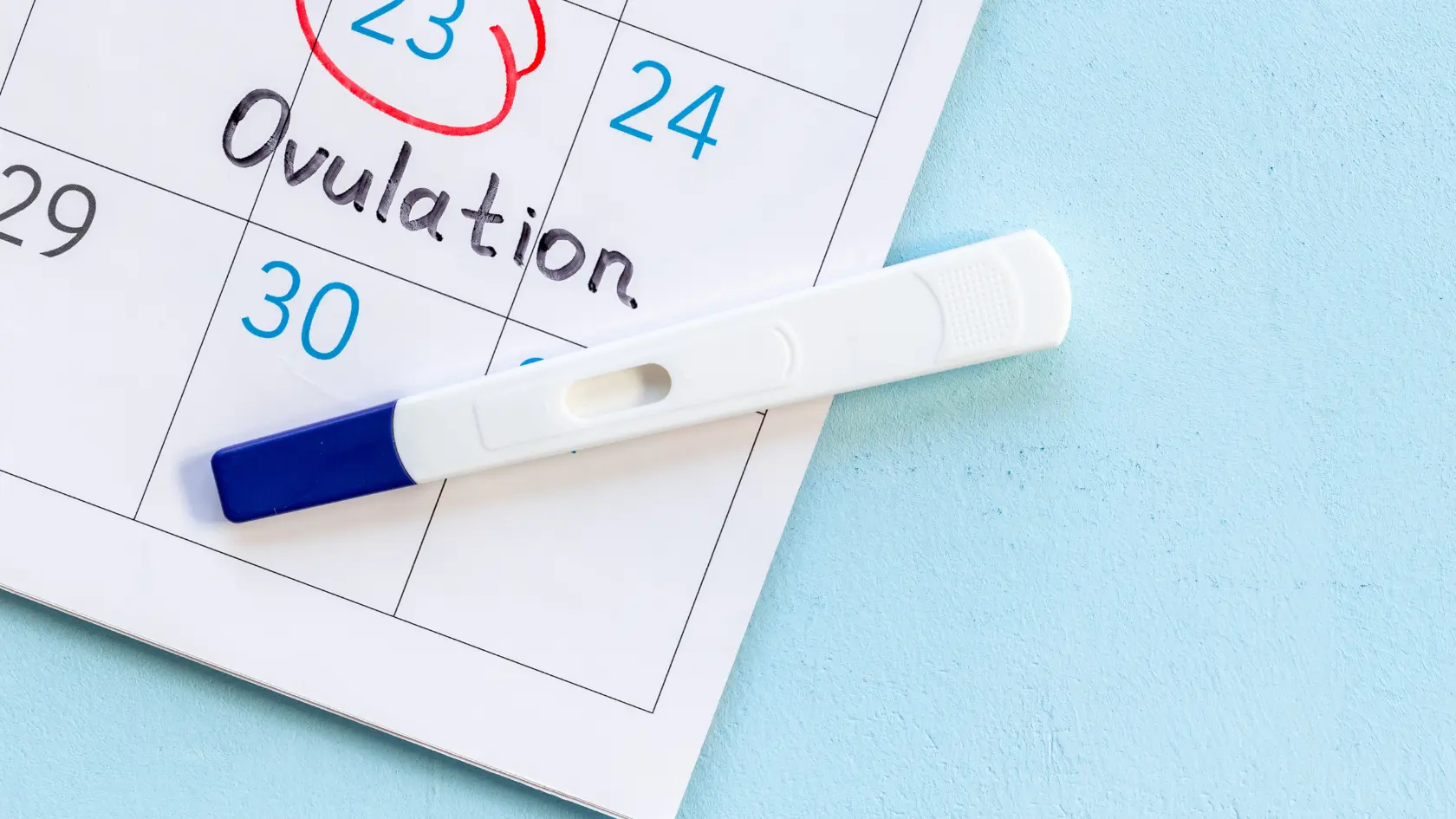Can you get laser hair removal while pregnant? This question is asked by many expecting mothers who are considering cosmetic procedures. However, when it comes to pregnancy, not all beauty treatments are safe for both the mother and the baby. So, let’s dive into the details of laser hair removal during pregnancy and explore its safety, risks, and alternatives.
Table of Contents
- What is Laser Hair Removal?
- Can You Get Laser Hair Removal While Pregnant?
- Hormonal Changes and Skin Sensitivity During Pregnancy
- Why is Laser Hair Removal Not Recommended During Pregnancy?
- Can I Do Laser Hair Removal While Pregnant? Exploring the Safety Aspect
- Is It Safe to Have Laser Hair Removal While Pregnant?
- Can Pregnant Women Get Laser Hair Removal? The Medical Perspective
- Laser Hair Removal During Pregnancy: Alternatives
- Risks of Laser Hair Removal During Pregnancy
- FAQs: Can You Get Laser Hair Removal While Pregnant?
- Final Thoughts: Laser Hair Removal During Pregnancy
What is Laser Hair Removal?

Laser hair removal involves the use of concentrated light to cause destruction of hair follicles to achieve a gradual decrease in hair growth. To kill and eventually prevent the growth of hair, a professional applies a device that directs laser energy to the skin. The pigment of the hair follicles absorbs this energy.
Can You Get Laser Hair Removal While Pregnant?
The answer to this question is not simple. Most medical professionals typically advise against laser hair removal during pregnancy. Laser hair removal while pregnant carries potential risks that should be avoided, despite the lack of direct evidence that the procedure is harmful to the fetus. The greatest cause of concern is pregnancy-related hormonal changes that can result in the skin being more sensitive to the procedure.
Hormonal Changes and Skin Sensitivity During Pregnancy
During pregnancy, there is a large hormonal change in the body that can cause many changes in your skin. For some women, this might mean more hair growth, while others may experience more sensitive or dry skin. These alterations can cause the skin to react more intensely to treatments like laser hair removal, leading to:
- Increased Sensitivity: Pregnancy hormones such as estrogen can turn skin even more sensitive to external stimuli, including heat and light, both of which are key components in laser hair removal.
- Pigmentation Changes: Hormonal fluctuations may lead to changes in skin pigmentation, making you more prone to hyperpigmentation or melasma (dark spots). Lasers can sometimes trigger these conditions or make them worse.
- Skin Irritation: Due to their heightened skin sensitivity, pregnant women are more likely to experience irritation, redness, or swelling when undergoing treatments like laser hair removal.
Why is Laser Hair Removal Not Recommended During Pregnancy?

Although the specific risks are not fully understood, the following are the main reasons why laser hair removal during pregnancy is generally avoided.
1. Comprehensive Research Lacking
There is insufficient evidence to say whether laser hair removal while pregnant is completely safe. Doctors are usually cautious, as no large-scale research has been conducted specifically to examine the nature of laser interventions on pregnant women and their unborn babies.
2. Potential Risks to the Skin
Laser hair removal involves a concentrated light source that heats the skin. During pregnancy, the skin is more likely to react to the laser with irritation, burns, or pigment changes. The risk of side effects like scarring, burns, and discoloration is higher during pregnancy because the skin is in a more sensitive state.
3. The Uncertainty of Effects on the Baby
Although the laser doesn’t penetrate deeply enough into the skin to directly harm the baby, the long-term effects of exposure to laser energy during pregnancy have not been thoroughly studied. Therefore, most doctors prefer to avoid the procedure as a precautionary measure.
4. Increased Skin Sensitivity
Pregnancy can increase skin sensitivity, making laser hair removal more painful or uncomfortable than usual. Pregnant women are often advised to avoid any treatment that could cause excessive discomfort or skin reactions.
Can I Do Laser Hair Removal While Pregnant? Exploring the Safety Aspect
The safety of laser hair removal during pregnancy isn’t fully understood. Direct studies have not demonstrated any harmful effects, but the majority of dermatologists and OB-GYNs would prefer to be on the safe side and recommend that pregnant women should avoid laser treatments.
It’s also important to note that, due to the hormonal changes, pregnant women may experience skin changes that could lead to a less effective treatment. The increased blood flow and sensitivity to light may make the procedure more painful and less effective during pregnancy.
Is It Safe to Have Laser Hair Removal While Pregnant?
While there is no clear answer on the safety of laser hair removal while pregnant, the general consensus in the medical community is to avoid the procedure unless absolutely necessary. The primary problems are skin irritation, pain, and risk of adverse pregnancy outcomes.
Some dermatologists might allow laser hair removal during pregnancy in certain circumstances, but this decision is usually made after consulting with a healthcare provider. Some women may be more prone to adverse reactions than others, and a personalized evaluation can help determine if it’s safe.
Can Pregnant Women Get Laser Hair Removal? The Medical Perspective
Medically speaking, pregnant women must be careful about laser hair removal. The majority of medical personnel do not recommend the procedure, particularly in the first trimester, as it is the most sensitive phase of fetal development. However, there can be exceptions in some instances, particularly when the procedure is medically necessary.
Laser Hair Removal During Pregnancy: Alternatives
If you are pregnant and considering alternatives to laser hair removal while pregnant, there are several safer options available:
1. Shaving

Shaving is the most common method and safest hair removal methods during pregnancy. This involves shaving scalp hair with the help of a razor. It is fast, cheap and can be done easily at home hence it is a favorite among many women.
Advantages of Shaving:
- Quick and Painless: Shaving is almost painless and it can be performed as a normal routine. No special equipment or professional help is needed and it can be done at the comfort of your own home.
- Minimal Risk: The risk of irritation or harm from shaving is relatively low. However, pregnant women should ensure they have a steady hand and good lighting to avoid cuts or nicks, especially as pregnancy hormones may cause the skin to be more sensitive or prone to dryness.
- Inexpensive: Compared to other hair removal methods, shaving is very affordable. It only requires a razor and shaving cream or gel.
- Convenient: Shaving doesn’t take much planning and can be completed quickly. This is particularly helpful when you have limited time to manage other aspects of pregnancy.
Things to Consider:
- Skin Sensitivity: Pregnancy hormones often make the skin more sensitive, which can result in increased irritation, razor bumps, or ingrown hairs. Using a gentle razor and shaving cream can help minimize these issues.
- Short-Term Solution: While shaving provides a smooth surface temporarily, hair removal is only short-term, so it requires frequent maintenance.
2. Waxing

Waxing is another viable hair removal option for pregnant women, though it may be uncomfortable due to the increased skin sensitivity that pregnancy hormones can cause. It is a more permanent remedy than shaving hair since it removes the hair at the root.
Advantages of Waxing:
- Long-Lasting Results: Waxing leaves the root hairless, and therefore, it will take a long time to regrow. Results are typically three to six weeks.
- Smooth Finish: The smoothness of waxing is superior to that of shaving, in that the technique removes all the hair, not only the superficial part. This results in smooth, silky skin.
- Fewer Ingrown Hairs: Because waxing removes hair from the follicle, the chances of ingrown hairs are reduced when compared to shaving.
Things to Consider:
- Discomfort: Waxing can be more painful than shaving, especially for pregnant women’s skin, which becomes more sensitive due to hormonal changes. This can result in redness and swelling immediately after the procedure.
- Possible Skin Reactions: Changes in hormones can cause more irritation or allergic reactions. It is advisable to test a small piece of skin and then continue applying the same product to other parts before applying it to delicate areas such as the bikini line.
3. Depilatory Creams

Laser hair removal is often replaced with depilatory creams. The creams effectively do their job by melting the hair at the surface so that it can be wiped off easily. While these creams are safe for most people, pregnant women should check the ingredients carefully to ensure there are no harsh chemicals that might cause irritation.
Advantages of Depilatory Creams:
- Painless: Depilatory creams are generally painless, offering an easy solution without the discomfort associated with waxing or shaving.
- Convenient: These creams are easy to apply and can be used at home. They are also relatively inexpensive and come in various formulations for different skin types.
- Quick Results: Most depilatory creams work quickly, providing fast hair removal in just a few minutes.
Things to Consider:
- Check Ingredients: Creams with chemicals such as calcium hydroxide or sodium hydroxide should be avoided by pregnant women because of their irritant nature to the sensitive skin. The label should always be checked with a healthcare provider before use.
- Skin Sensitivity: During pregnancy, skin may become more sensitive, and depilatory creams could cause a burning sensation, redness, or irritation. Before applying it to a larger area of your body, it’s crucial to conduct a patch test on a smaller one.
4. Electrolysis

Electrolysis is an electrified hair removal technique where a hair is destroyed using an electric current, this technique is more permanent than other techniques. It may be of particular interest to pregnant women who want to obtain long-term outcomes.
Advantages of Electrolysis:
- Permanent Results: Unlike waxing or shaving, electrolysis is considered a permanent hair removal method. Over multiple sessions, it can significantly reduce or eliminate hair growth.
- Precision: Electrolysis is applied to individual follicles, so it is best on smaller body parts, such as the eyebrows or upper lip.
- FDA-Approved: Electrolysis is the only FDA-approved permanent hair removal method, which adds to its credibility.
Things to Consider:
- Professional Treatment Required: Electrolysis should be performed by a licensed professional, so it’s not a DIY method. This makes it more time-consuming and expensive than other options.
- Discomfort: Some women find electrolysis uncomfortable due to the electric current applied to each hair follicle. Pregnant women may find the procedure more intense due to heightened skin sensitivity.
- Multiple Sessions Needed: Electrolysis is typically done in multiple sessions to produce permanent results that may take months to be obtained.
Risks of Laser Hair Removal During Pregnancy
The risks of laser hair removal during pregnancy primarily involve skin sensitivity and potential complications, including:
- Burns and Scarring: The heat from the laser can potentially cause burns, especially for pregnant women whose skin is more sensitive.
- Skin Pigmentation: Hormonal changes can lead to pigmentation issues, such as dark spots or melasma, which may be worsened by laser treatment.
- Discomfort: Pregnancy hormones can make the treatment more painful, as the body may react differently to the laser energy during this time.
- Hormonal Shifts: Pregnancy hormones can also make the hair less responsive to laser treatments, making the procedure less effective.
FAQs: Can You Get Laser Hair Removal While Pregnant?
1. Can I get laser hair removal in my first trimester?
No, it is generally advised to avoid laser hair removal during the first trimester due to the risk of skin sensitivity and the critical development phase of the baby.
2. Is it safe to get laser hair removal while pregnant?
While there’s no definitive answer, it’s safer to avoid laser hair removal during pregnancy due to potential risks to the skin and the lack of comprehensive research on its safety during pregnancy.
3. What alternatives are there to laser hair removal during pregnancy?
Shaving, waxing, depilatory creams, and electrolysis are all safer alternatives that can be used during pregnancy.
4. Can I undergo laser hair removal after pregnancy?
Yes, most women can undergo laser hair removal after childbirth, but it’s best to wait until after breastfeeding and consult with your doctor to ensure that it’s safe for you.
Final Thoughts: Laser Hair Removal During Pregnancy
As a result of the higher risks involved and the lack of reliable research on its safety, laser hair removal while pregnant is generally not advised. Your health and well-being, as well as that of your baby, should be considered a priority, and in the case of laser hair removal, you should always consult a medical professional before proceeding.
Explore more on Pregnancy Must –









